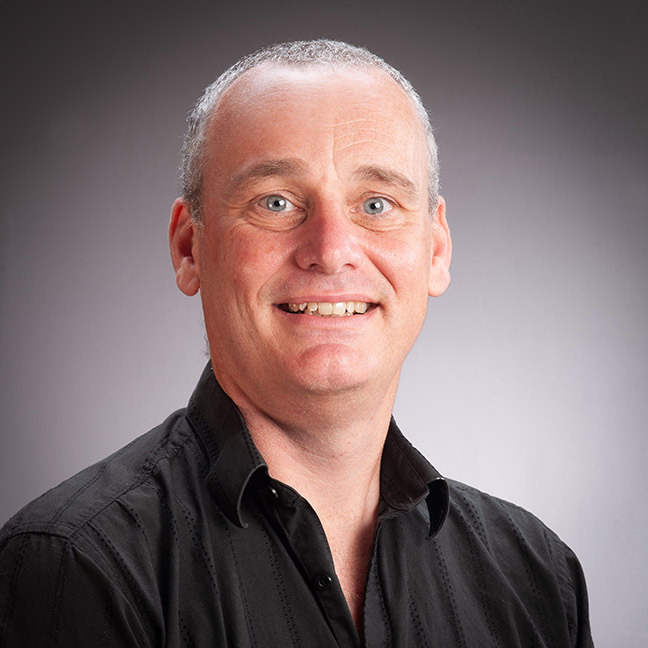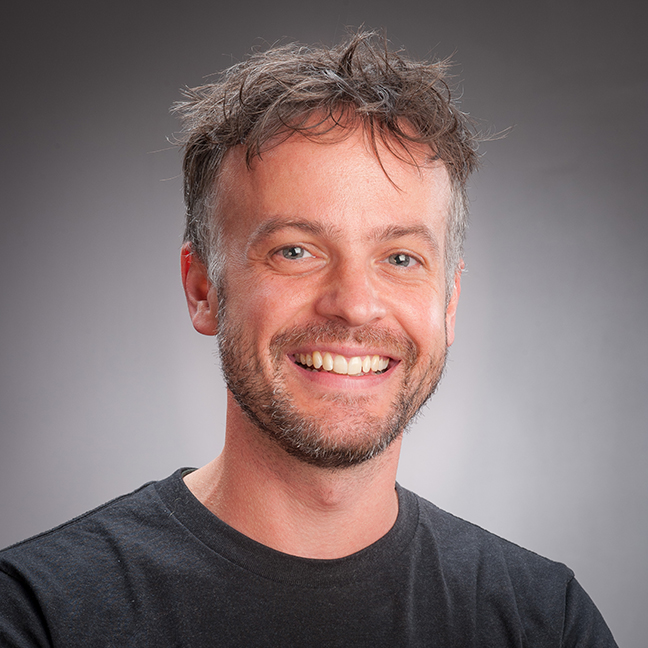People
Academic staff
Associate Dean - Academic (Postgraduate)
Wellington Faculty of Science
Students
- Jennie Ramirez - PhD
- Lauren Taylor - PhD
- Ruth Pay - MSc
- Yicheng Su - MSc
Researchers
- Ethan Woolly
Collaborators
We collaborate with researchers in a wide variety of disciplines. Our main contacts are listed here.
School of Biological Sciences
Senior Lecturer
School of Biological Sciences
Senior Lecturer in Biochemistry
School of Biological Sciences
School of Psychology
Professor of Psychology
School of Psychology
University of Canterbury
Dr Matt Stott - Identification of new bioactives from extremophilic microorganisms
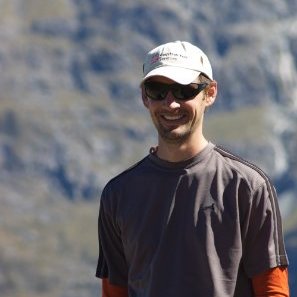
Dr. Matthew Stott
Associate Professor Matthew Stott
ESR
Dr Penny Truman - Anti-microbial bioassays

Dr. Penny Truman
Senior Lecturer
People in the news
Strait A student
21 April 2011
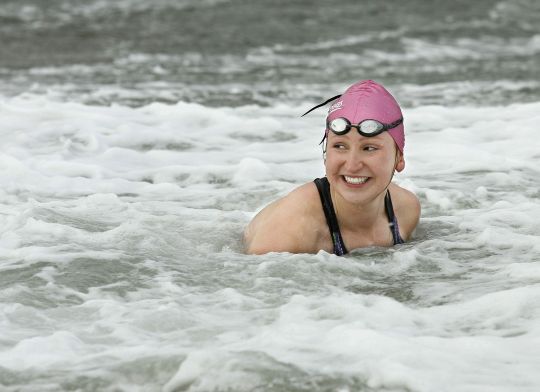
Earlier this month, MSc student Emma Aitken became the 80th person to successfully swim Cook Strait. Under the watchful eye of swimming legend Philip Rush, Emma completed the 26km swim in 9.5 hours.
Emma’s accomplishment is all the more remarkable for it being her first attempt at a long distance swim. In fact, before deciding to take on the challenge, she hadn’t swum regularly since taking swimming lessons at her local pool at the age of twelve. In mid 2009, to improve her fitness, Emma had decided to take up swimming again. A friend suggested she set a target and, by the end of the day, Emma had signed up to swim Cook Strait.
A rigorous training schedule involved 20km to 30km of open water swimming each week. This increased to 90km after the end of the second trimester last year. Unlike many who attempt to swim the Strait, study commitments precluded Emma from joining a training squad. Instead, a majority of her preparation was undertaken alone in the waters along Wellington’s south coast.
Emma also spent a great deal of time raising the $5,500 needed for the attempt through baking and ice cream sales. Despite the many hours spent focusing on the swim, Emma managed to keep up her studies in chemistry and maintain a straight A average.
Connecting the Tasman Sea on the west with the South Pacific Ocean on the east, Cook Strait is one of the most dangerous and unpredictable waters in the world. On each side of the strait the tide is almost exactly out of phase, so high water on one side meets low water on the other, resulting in extremely strong currents. As a result, fewer than 70 swimmers have successfully negotiated the crossing since Barrie Devenport first accomplished the feat in 1962.
After a number of frustrating false starts throughout the summer, Emma finally got her chance to swim the Strait on April 12. Although weather conditions were ideal on the day, a strong unpredicted current held up progress for 2 hours. Under the English Channel crossing rules swimmers are prohibited from wearing a wetsuit. To prevent muscles from seizing and to keep the body warm refreshment breaks are limited to under a minute. Swimming in an arc to counter the tides and currents, Emma reached the South Island in 9.5 hours.
Whilst relieved that it’s now all over, Emma is proud of achieving the goal she set herself back in 2009. She has accomplished a feat so quintessentially Kiwi and something so few have achieved before her. Emma Aitken has successfully swum the Cook Strait.
Woolf Fisher Scholarship awarded for study at Oxford
18 October 2010
Peter Clark, a School of Chemical and Physical Sciences Masters student, has been awarded a prestigious Woolf Fisher Scholarship, enabling him to study at Oxford University in the United Kingdom.
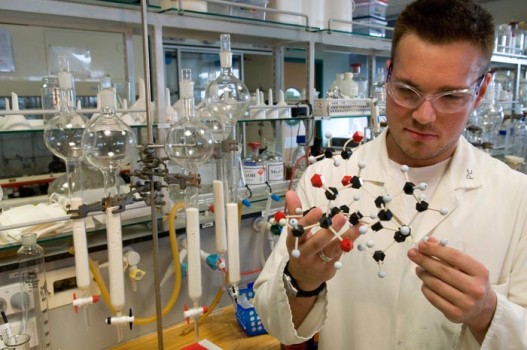
Only three scholarships for university students are awarded annually, each worth close to $100,000 per annum for three to four years.
In Oxford, Peter intends to continue his studies in chemistry, looking at the complex field of multi component domino reactions—combining three or more compounds in a single reaction, as opposed to the traditional two. This process reduces chemical waste and improves efficiency. He hopes that in the long term shorter syntheses will deliver more affordable pharmaceutical drugs for patients.
“This field of science is considered green chemistry as it explores more efficient methods to create pharmaceuticals. Hopefully, one day it will help put New Zealand on the map as a centre of discovery and technology,” says Mr Clark.
“As a kid, I was captivated by jigsaw puzzles and I think why I love chemistry so much is because like a jigsaw, I’m bringing pieces together to achieve a result,” says the high achieving 22-year-old.
His supervisor in the School of Chemical and Physical Sciences, Dr Rob Keyzers, said that Mr Clark was a very worthy recipient.
“Peter’s an incredibly bright and motivated student and this will be a fantastic stepping stone for his future career. We’re all delighted for him and I know that he will do the University and New Zealand proud overseas.”
Scholars were selected for their outstanding academic and potential leadership abilities. The Woolf Fisher Trust trustees selected recipients who possess many of the qualities admired by the late Sir Woolf Fisher, co-founder of Fisher and Paykel— integrity, kindness and generosity, leadership, boldness of vision and exceptional zeal, keenness and capacity for work.
Sir Noel Robinson, the Trust’s chairman, says this year’s shortlist reflects an outstanding calibre of scholars.
“The quality of our candidates is just so high now. All three students could become world leaders in their own right

